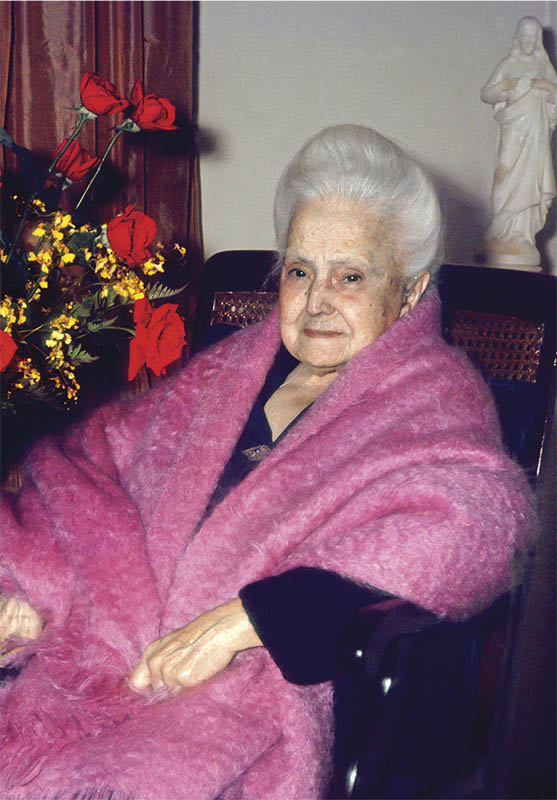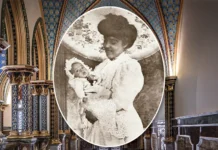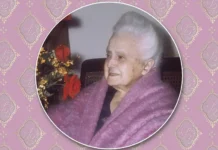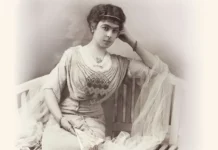Dona Lucilia had a harmonic ensemble of virtues that allowed her to unite kindness with firmness, mercy with justice, and affability with a serious spirit, and to discern the good or evil in persons and situations.
Discernment of psychologies was one of the many gifts with which Providence endowed Dona Lucilia for the perfect fulfilment of her mission as mother and educator.
She similarly knew how to discern among the friends of Dr. Plinio, who were the true ones, from the occasional one that was not. Two episodes highlight this unique gift.
Dr. Plinio once invited a young colleague from Catholic circles to dine at his house. Dona Lucilia noticed something peculiar as she discreetly observed the dinner guest. When the young man left, she cautioned her son:
— Be careful with that hand… the way he holds his fork is very strange…
Her presentiment was soon confirmed by fact. A while later, this youth betrayed his Catholic colleagues, bringing much grief to Dr. Plinio.
On another occasion, Dr. Plinio invited one of his closest friends from the Marian Congregations to his home for lunch. While everyone was at table the telephone rang. The maid stepped in to say that Mr. X was on the telephone to discuss an urgent matter with Dr. Plinio. He interrupted lunch to take the call. The telephone was in an adjacent room, and Dona Lucilia and the visitor followed Dr. Plinio there. The phone call concerned a subject of great importance to the Catholic cause.
After the phone call, they returned to the table and continued their conversation. When the visitor left, Dona Lucilia asked Dr. Plinio:
— Did you notice his reaction while you were speaking on the telephone?
— No, Mother, I was so absorbed in the discussion, that I did not pay attention.
In a grave tone that revealed the force of her affection for him, she cautioned:
— My son, be careful with this friend of yours… Whenever you had a worried look, he became happy. When you gave a good answer to the person on the other end and set things straight, he showed either indifference or dejection… He is not your friend!
Not long afterwards this “friend,” would figuratively “stab” Dr. Plinio in the back…
One might wonder how such a kind person as Dona Lucilia could be alert to evil by means of apparently insignificant details. The fact is that the concept of kindness that had been spread in many circles—especially from the late 1930s onward—differed greatly from the true conception of this virtue, taught by the Church.
Since this time onward, there has been a tendency to confuse kindness with complacency toward certain forms of evil, the consequence almost always being the obstinate turning of a blind eye to evil, as if it did not exist.
Dona Lucilia acted very differently. Her soul admirably brought together kindness with unbreakable firmness of principles: mercy with a keen sense of justice; affability with an entirely serious spirit. This harmonic ensemble of virtues enabled her, not infrequently, to note the good or evil in persons and situations.
A loving artifice
Always maternal, Dona Lucilia was particularly sympathetic towards anyone suffering from a disability, and would offer them every form of kindness and comfort, whenever the occasion arose.
Her treatment of a distant relative who suffered the misfortune of having been blinded during childhood, as the result of a medical blunder, gives us a notion of this compassion.
This relative was a hardened atheist which made Dona Lucilia pity him all the more. She lost no opportunity to show him kindness in the hope of touching his soul. She often had him over for lunch or dinner, entertaining him for hours on end with the help of Dr. João Paulo and Dr. Plinio.
Knowing that her relative had a hearty appetite despite being very self-restrained, Dona Lucilia arranged with the maid to bring the platter, at her signal, and serve him another helping without his noticing. In order to locate his food, the blind man would run his fork along the edge of the plate, then across its surface. Just when he thought he was almost finished, he found—with evident pleasure—another serving of food!
Dona Lucilia not only satisfied his gastronomic likings, but adapted herself to his conversational tastes. Her solicitude, carried into his extreme old age, could not have been greater.
“Poor thing! Don’t do that!…”
Dona Lucilia’s desire to do good was so great that it extended even to the smallest creatures.
One day during lunch Dr. Plinio noticed that something was moving beneath the foliage on top of the wall. He looked at Dona Lucilia in surprise and said:
— Mama, how very odd, something is rustling under the leaves over there.
She said nothing. Wanting to get to the bottom of the matter, her son asked if she had noticed the movement. Dona Lucilia quietly answered:
— Yes, I had noticed something earlier.
— But I only saw it now – he replied, more categorically.
Turning to the maid waiting at table, Dr. Plinio said:
— Ana, go see what’s on that wall.
Dona Lucilia fell silent. The maid laughed and said with her thick accent from Portugal:
— Doctor, can’t you tell that Dona Lucilia is hiding something from you?
— What is Dona Lucilia hiding from me?
— There is a cat over there with her kittens.
Dr. Plinio was annoyed. Not with Dona Lucilia, of course, but at the thought of a wall crawling with kittens. In short order, the friendly creatures would be grown and would take over the whole yard. Then, when least expected, they would be slinking into the house. One or two might be manageable, but a whole litter…
Without wasting a moment he said to the maid:
— Get a broom or a garden hose and expel the cat and all her kittens from the yard.
Taken with pity for the cat, Dona Lucilia turned to her son with mild concern and said:
— Ah! The poor thing! Don’t do that. Don’t you see that she might lose one of the kittens for good that way?
Such an idea tugged at her motherly heart. But her son tried to persuade her:
— Mama, the cat does not reason. It loses a kitten like we lose a hair.
Dona Lucilia, instead of coming up with a logical syllogism, appealed to his sentiments:
— Poor thing! Don’t do that.
Her “poor thing,” spoken with such kindness and pity conquered Dr. Plinio, and he said to the maid:
— Anna, take care of the cat and put some milk out for it every day.
The cat, as an irrational creature, had no notion of its own existence. But enfolded in Dona Lucilia’s sweet compassion, it and its little ones would have milk from a bowl instead of a dousing from a garden hose. ◊
Taken, with slight adaptations, from:
Dona Lucilia. Città del Vaticano-Nobleton:
LEV; Heralds of the Gospel, 2013, p.360-362; 372-374.







